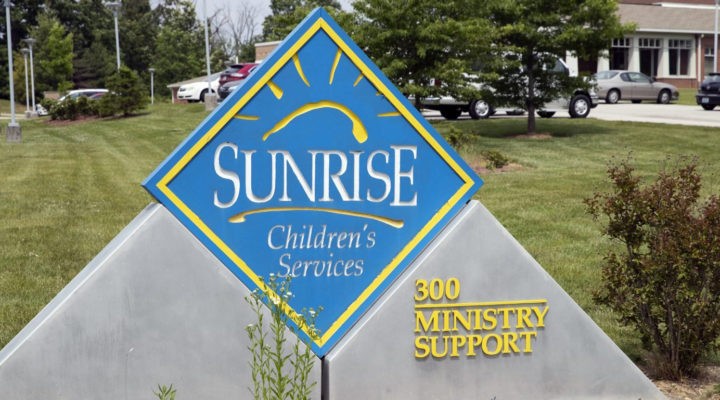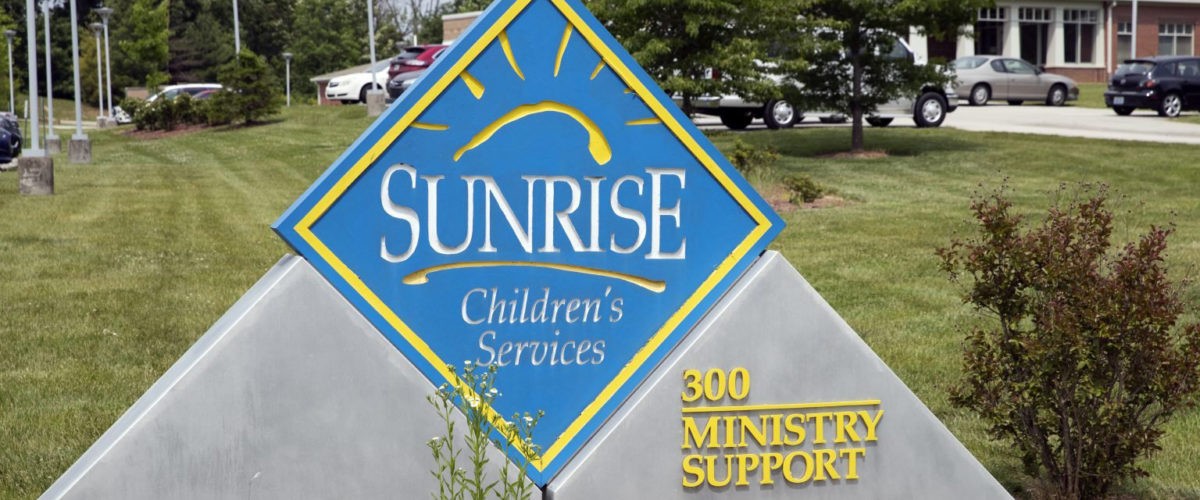A two-decades-old dispute between the state of Kentucky and a Baptist child care agency turned two pages in opposite directions within a few days, offering anything but clarity about the situation.
On one hand, Sunrise Children’s Services, an agency of the Kentucky Baptist Convention, won a one-year renewal of its contract to provide services to children through the state’s Cabinet for Health and Family Services. Negotiations between the state and the Baptist agency took 22 months.
On the other hand, the state of Kentucky agreed to settle a 21-year-old case, Pedreira v. Sunrise Children’s Services, in terms that would create significant change to the state’s partnership with faith-based child care ministries. That settlement, hailed as a victory by the ACLU and Americans United for Separation of Church and State, might find objection with the Baptist group and thereby imperil future state contracts to serve foster and adoptive children. The agency has not yet released a public comment on the matter.
Meanwhile, key components of the settlement must be ratified by the changes in state code and could be subject to objections by state legislators.
Key components of the settlement must be ratified by the changes in state code and could be subject to objections by state legislators.
While the governorship — and therefore government appointed posts — is held by a Democrat, Republicans hold a super-majority in both the state Senate and House of Representatives and have the attorney general’s office, where Daniel Cameron has made national headlines for advocating on behalf of social conservative causes.
At the heart of the dispute between Sunrise and the state is the treatment of LGBTQ foster and adoptive parents, as well as LGBTQ children and children from different religious backgrounds.
One-year renewal of contract
Earlier, Sunrise Children’s Services had refused to sign a new contract with the state because it required all agencies with state contracts to adhere to its ban on discrimination based on the sexual orientation of prospective foster and adoptive parents. Sunrise will not work with foster or adoptive parents who are gay, citing its deeply held religious beliefs against same-sex marriage and same-sex relationships.
The dispute had reached a stalemate, with Sunrise no longer sanctioned to work with the state, until the U.S. Supreme Court in June ruled on a Philadelphia case that opened a window of opportunity for the Baptist group’s cause.
That case, Fulton v. City of Philadelphia, concerned whether the city of Philadelphia could require faith-based organizations to comply with the city’s nondiscrimination policies in order to partner with the city in foster care and adoption cases. The high court issued a narrow ruling that addressed only the Philadelphia situation and not several larger issues about religious freedom claims.
However, even with a narrowly construed ruling, the Philadelphia case bears enough similarity to the Kentucky situation that the state of Kentucky relented and offered Sunrise a new contract.
Even with a narrowly construed ruling, the Philadelphia case bears enough similarity to the Kentucky situation that the state of Kentucky relented and offered Sunrise a new contract.
In Philadelphia, the court ruled that the city could not exclude Catholic Social Services — which also refuses to serve LGBTQ clients — as one of several providers of foster care services so long as other entities with city contracts will serve the LGBTQ community. The court granted leeway for the Catholic child care agency to discriminate, so long as not all partner entities providing the same services discriminate.
This closely mirrors the situation in Kentucky, where the state contracts with other child care agencies that do serve the LGBTQ community — meaning Sunrise’s refusal to serve gay parents does not prevent them from being served by the state overall.
By some accounts, the state needs Sunrise and Sunrise equally needs the state contract. Baptist Press reported that Sunrise President Dale Suttles had testified that the state contract contributes about $16 million of his agency’s $22 million annual budget, or 73%.
Settlement with ACLU and Americans United
In the longer-running dispute, Sunrise earlier had declined to participate in settlement talks with the state, the ACLU and Americans United, even though the case stems from allegations against Sunrise back when it was known as Kentucky Baptist Homes for Children.
This case began in April 2000.
This case began in April 2000 when Americans United and the ACLU filed suit, challenging state financing of Sunrise because it discriminates against gay employees on religious grounds and teaches sectarian beliefs to its young residents even if they have come from other faith traditions.
Over the next two decades, the case dragged on but with multiple twists and turns. Early on, a trial court dismissed the employment claims from the suit but let stand the claims related to teaching sectarian beliefs as a violation of state funding. A higher court threw out even those claims, but on appeal, those claims were allowed to proceed. Sunrise appealed to the U.S. Supreme Court for immediate relief, but the court would not hear the case.
That threw the case back to the trial court where, in March 2013, the ACLU and Americans United reached a settlement agreement in principle with the state, but that settlement was challenged by Sunrise. More appeals ensued, including another attempt to get the U.S. Supreme Court involved, which it once again declined to do.
Fast-forward to last week, when the state of Kentucky announced, along with the ACLU and Americans United, that a settlement — very similar to the one challenged by Sunrise in 2013 — once again has been reached. As part of that settlement, the ACLU and Americans United have withdrawn their 21-year-old case against Sunrise and the state has agreed to sweeping changes in the way it handles matters of faith with children in state care. The case had generated 645 docket entries numbering more than 7,700 pages.
In the settlement, Kentucky officials agreed to shield children from religious proselytization, coercion or discrimination when they are placed by the state with taxpayer-funded residential providers. State officials also agreed to prohibit these care providers from discriminating against or mistreating children because of their sexual orientation or gender identity.
Among other terms of the settlement, the state must inform children and, if possible, their parents about the religious affiliation of child care facilities or foster homes. If the children or parents object, the state will attempt to provide an alternate placement.
Further, children must provide consent before any religious items are displayed in their rooms at taxpayer-funded child care agencies and foster homes, and religious materials may be given only to children who request them.
Although Eric Friedlander, secretary of the Kentucky Cabinet for Health and Family Services, has signed off on the settlement, parts of it are contingent on being codified into new or amended state regulations. Whether those changes can be made by department regulation or will require legislative approval was not made clear.
Related articles:
Upcoming Supreme Court ruling could influence child care case in Kentucky too


